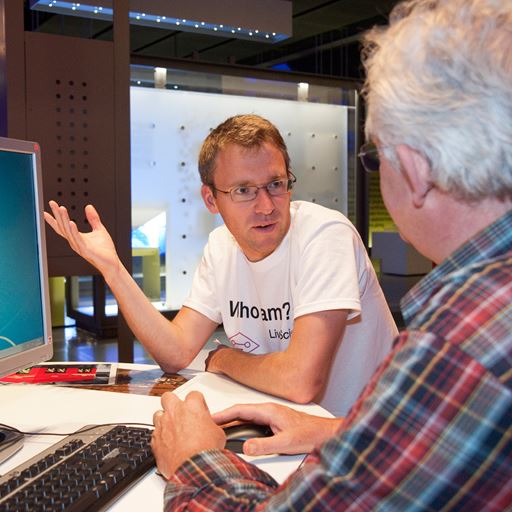New research from the University of Essex offers fresh insight into what risks people take in the event of an emergency evacuation.
The study, published in the journal Fire Technology, looked at how people behaved when they were faced with having to evacuate a building in an emergency as part of an interactive computer game. The evacuation game investigated whether people took the risk of collecting objects before evacuating.
The results of the experiment showed that people were far more concerned about leaving something behind before fleeing a building in an emergency than following the behaviour of other, albeit computer-generated, evacuees or knowing the exits in the building that was being evacuated.
Professor Edward Codling, from the Department of Mathematical Sciences at Essex, and Dr Nikolai Bode, from the University of Bristol, recruited over 1,200 museum visitors to take part in the experiment as part of the Live Science programme at the Science Museum in London.
“We confirmed that the fear of losing something caused people to take risks,” explained Dr Bode. “This effect was surprisingly clear, considering that people were collecting abstract digital objects in our experiment.”
Interestingly, the results also appear to show that older participants were less likely to collect objects. “This was an unexpected result but we don’t know for certain what causes this effect,” explained Professor Codling. “One possible explanation is that younger participants simply viewed the experiment as a challenge and did not consider the evacuation context as much as older people did. Or the result could be because younger people play more computer games and are therefore more confident or even over-confident in their abilities.”
While caution should be taken when applying findings from computer game experiments in the real world, Dr Bode said computer games do have their uses in safety science. “Computer games offer a unique opportunity for everyone to interact directly with the tools that are routinely used in event planning and building design. Our games also make it possible for people to experience some of the decisions they may have to make in emergencies in a safe way. We hope this could be useful in safety training.”
Adam Boal, Live Science Coordinator at the Science Museum, said: “Since 2010 the Science Museum has hosted 36 scientific groups, and over 54,000 visitors have participated in their experiments. Live Science is a great way for our visitors to see how scientific experiments are performed and for scientists to collect data to inform interesting and important studies such as this.”
Understanding evacuations of high-occupancy buildings presents a major challenge in fire safety science and this study is part of an ongoing research collaboration between Professor Codling and Dr Bode, into how human crowds behave with the aim of improving crowd management and safety in evacuations. Computer games linked to their research are available online.
Picture above of Dr Nikolai Bode at Live Science event at the Science Museum in London (Picture courtesy of Jennie Hills/Science Museum London)

.jpg?mh=500&mw=500&hash=6568B6C9CCF5290A596BEF6678B6AD0E)




